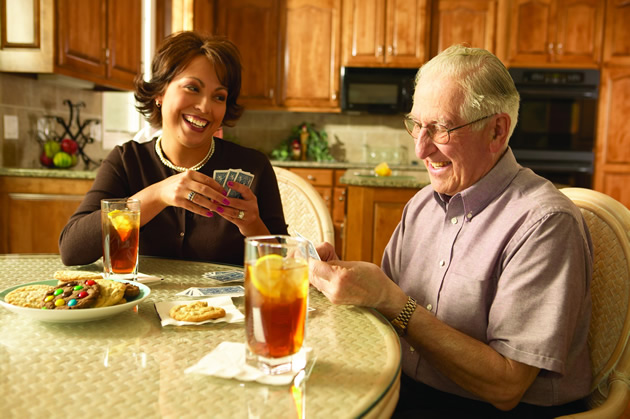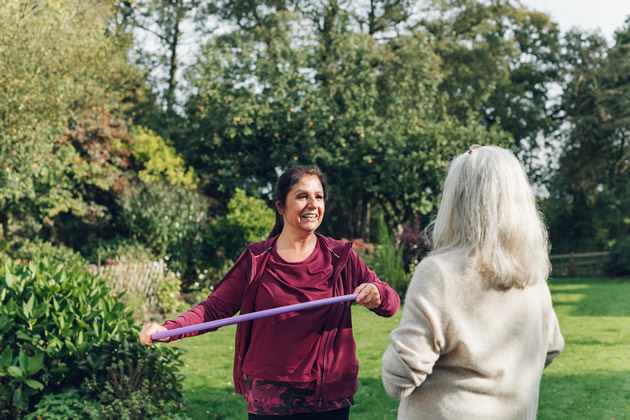A heatwave is on the way!
Tips to stay well in the hot weather from Home Instead Hammersmith and Chiswick (Ad)

- our ability to effectively regulate our body temperature gets impaired, due to various physiological changes associated with ageing.
- Maintaining optimal blood pressure during extreme heat might be challenging.
- The circulation to vital organs might get compromised as a result.
- In extreme cases our body produces toxins which further compromise optimal function.
While older adults are considered individuals over the age of 65 years, it should be however noted that the alteration associated with ageing; by extension, heat vulnerability are complex and strongly related to genetic and lifestyle factors. For example, obesity and type 2 diabetes can increase heat vulnerability in older adults. People who suffer from chronic illnesses such as: heart failure, high blood pressure kindly diseases or people who take medications such as diuretics might also be at greater risk of heat-related complications. \
It is important to know the signs and symptoms of heat exposure and the right response.
Some heat-related illnesses and common symptoms include:
- Deterioration in existing medical conditions – this is the most common health problem of heat stress.
- Heat rash – sometimes called ‘prickly heat’, this is a skin irritation caused by excessive sweating. It looks like a red cluster of pimples or small blisters. It is most likely to occur on: the neck and upper chest, in the groin, under the breasts and in the elbow creases.
- Heat cramps – these include muscle pains or spasms, usually in the abdomen, arms or legs. They may occur after strenuous activity in a hot environment when the body gets depleted of salt and water. They may also be a symptom of heat exhaustion.
- Dizziness and fainting – heat-related dizziness and fainting result from reduced blood flow to the brain. Heat causes an increase in blood flow to the skin and pooling of blood in the legs, which can lead to a sudden drop in blood pressure. There can be a feeling of light-headedness before fainting occurs.
- Heat exhaustion – this is a serious condition that can develop into heatstroke. It occurs when excessive sweating in a hot environment reduces the blood volume. Warning signs may include paleness and sweating, rapid heart rate, muscle cramps (usually in the abdomen, arms or legs), headache, nausea and vomiting, dizziness or fainting.
- Heatstroke – this is a medical emergency and requires urgent attention. Heatstroke occurs when the core body temperature rises above 40.5 °C and the body’s internal systems start to shut down. Many organs in the body suffer damage and the body temperature must be reduced quickly. Most people will have profound central nervous system changes such as delirium, coma, and seizures. The person may stagger, appear confused, have a fit or collapse and become unconscious. As well as effects on the nervous system, there can be liver, kidney, muscle, and heart damage.
Prevention of heat-related illness
Prevention is the best way to manage heat-related illness. Some tips to prevent heat stress include:
- Drink plenty of water – you need to drink more during hot weather, regardless of how active you are, even if you don't feel thirsty (check with your doctor if you are on limited fluids or fluid pills). Avoid alcohol or drinks that contain lots of sugar. Don’t have extremely cold liquids, as they may cause stomach cramps.
- Avoid exposure to heat – stay out of the sun as much as you can,
- Protect yourself outside – if you must be outdoors, remember to protect yourself from the sun – ‘slip, slop, slap’ by covering exposed skin with lightweight clothes, using sunscreen and wearing a hat, ‘seek’ shade and ‘slide’ on sunglasses.
- Plan ahead – too much activity on a hot day can lead to heat stress. If you can, restrict activity to cooler parts of the day. Avoid physical activities like sport, renovating and gardening.
- Don’t stay too long in the car – even on cool days, cars can heat up to dangerous temperatures very quickly. People or pets that are left unattended in parked cars for even a few minutes are at risk of serious heat-related illnesses and possibly death.
- Take it easy – rest often and, whenever possible, stay indoors or in the shade.
- Stay cool – and keep air circulating around you. Draw your blinds or curtains and use a fan or air conditioning if possible (if you don’t have air conditioning, consider visiting an air-conditioned shopping centre or public library). Keep yourself cool by using wet towels, putting your feet in cool water and taking cool (not cold) showers.
- Keep up your energy levels – eat smaller meals more often and cold meals such as salads.
- Check in on others – keep in touch with older, sick or frail family, friends and neighbours who may need help coping with the heat, especially those who live alone. Call them at least once on any extreme heat day.
If you are worried about yourself or an elderly relative staying safe in the summer months, when the risk of being affected by heat-related illnesses increases, get in touch. Our Care Professionals and Nurses are available to support as required. We provide bespoke home care service; our Care Professionals build close relationships with clients which enable them to spot subtle changes in the client’s condition and seek prompt and relevant help.
Please call us on 02087461213 or visit us in our office 186 Sutton Court Road Chiswick.

Advertisement
July 15, 2022
Related links
You can visit the independent home care website to read what customers have to say about their experience with Home Instead Hammersmith and Chiswick. Call them now on 020 8746 1213 to find out more about their bespoke home care service – or book a free consultation through their website www.homeinstead.co.uk/hammersmith-chiswick/contact-us |
